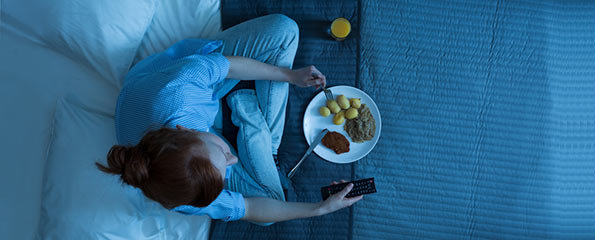Binge-watching has long-term impact
Older Game of Thrones fans planning a marathon recap before the new TV season premieres might want to reconsider binge-watching their favourite show.
Research from The University of Queensland has found the amount of time older adults spend watching TV now could have an impact on their health in years to come.
UQ School of Public Health PhD candidate Natasha Reid said the study showed people who spent less time watching television 12 years ago had significantly better lower-body muscle strength today.
“Television watching is a common past-time that, when excessive, has been linked to a range of negative health consequences,” Mrs Reid said.
“It is also linked to other behaviours that can have an impact on health, including increased snacking.”
The research used data from almost 2000 participants in the Australian Diabetes, Obesity and Lifestyle Study (AusDiab), aged from 47 to 85 at the start of the project.
Participants were classified into six groups based on their TV watching habits over the 12-year period.
These ranged from the consistently low TV watchers at less than five hours a week (9.7% of participants) up to the high-increasing group at more than 30 hours a week (5.2%).
“This was the first study to identify and examine associations of TV time trajectories with physical function in older adults,” Mrs Reid said.
“On a knee extensor strength test, the consistently low TV watchers performed better than most other groups.”
Mrs Reid said the research indicated that excessive TV watching needed to be addressed earlier rather than later in life, as this could make a difference when it came to independent living.
“Future longitudinal studies that examine sitting time and its impact on physical function are also needed.”
Almost a third of participants fell into the moderate-increasing range, increasing their weekly TV watching from about 10 hours a week to about 20 hours.
The research is published in Medicine and Science in Sports and Exercise.
(Source: The University of Queensland, Medicine and Science in Sports and Exercise)
Dates
Tags
Created by:

 Login
Login














